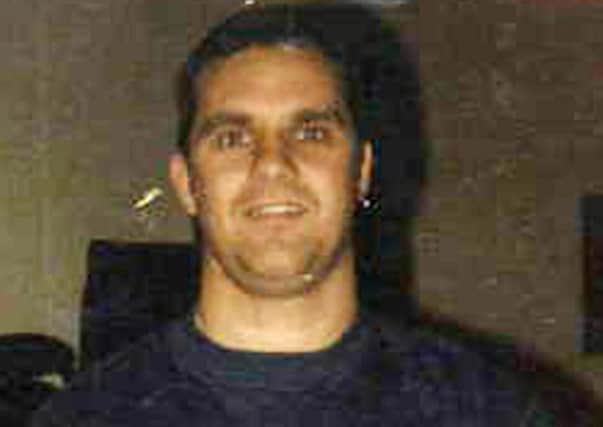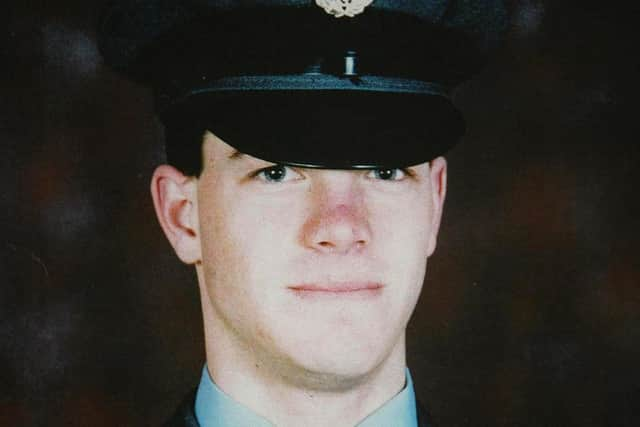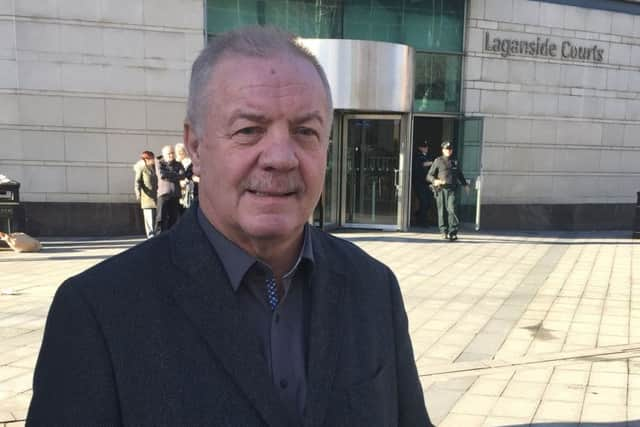Funding concerns raised over probe into loyalist murders


The Police Ombudsman’s probe into alleged police criminality could take years if the State fails to stump up the cash required to set up a dedicated unit to probe the killings, Lord Justice Weir was told.
The funding problem is the latest in a series of resourcing issues raised during a review exercise conducted by judge Weir of 56 stalled legacy inquests in Northern Ireland.
Advertisement
Hide AdAdvertisement
Hide AdIt was revealed in Laganside courts hours after Northern Ireland’s Police Chief George Hamilton expressed his own concerns about the on-going failure to find an agreed way to deal with outstanding conflict-related cases.


The Ombudsman is examining claims of police misconduct in relation to four murders between 2000 and 2010 blamed on the Shankill Road UVF.
The victims were loyalists Jackie Coulter and Bobby Mahood, who were shot dead on the Crumlin Road in August 2000; Craig McCausland, who was shot in his home in Woodvale in July 2005; and former loyalist prisoner Bobby Moffett, who was gunned down on the Shankill Road in May 2010.
Seamus McIlroy, representing the Police Ombudsman, said the watchdog had yet to receive a response from Stormont’s Justice Department to a business case request to fund a team to investigate the allegations of police involvement.
Advertisement
Hide AdAdvertisement
Hide Ad“This isn’t a matter that’s going to take months, but years, if we don’t get the extra resources,” he said.


“We have identified a number of issues that concern us and we have gone to the department to say ‘please give us the money to let us properly deal with these matters’.”
Solicitor Padraig O Muirigh, who represents the families of all four murder victims, told judge Weir he was “gravely concerned” that the Ombudsman’s team had not yet been funded.
“These are very grave allegations into the handling and protection of alleged informants within the UVF on the Shankill,” he said.
Advertisement
Hide AdAdvertisement
Hide Ad“It is very disappointing that the Ombudsman has been stymied due to a lack of resources.”


On the eighth day of Judge Weir’s review a case linked to a controversial Army unit alleged to have carried out random killings during the Troubles was also examined.
Daniel Rooney, 18, was shot dead by soldiers in the St James Crescent area of west Belfast in September 1972.
The judge was told that an inquest would not be able to proceed until an investigation into the secretive Military Reaction Force (MRF) was conducted by the PSNI’s Legacy Investigation Branch (LIB).
Advertisement
Hide AdAdvertisement
Hide AdQuestioning whether the LIB was sufficiently resourced, Lord Justice Weir stressed that the ultimate responsibility for ensuring human rights compliant investigations were carried out was the Government.


“The State has the obligation to make available the necessary resources,” he said.
Judge Weir also assessed the state of readiness of an inquest into the death of a teenager shot dead in Belfast in June 1972.
The death of Marian Brown, 17, was initially blamed on paramilitaries but a review of the case by the police’s now-defunct Historical Enquiries Team (HET) suggested the shot may actually have been fired by a soldier.
Advertisement
Hide AdAdvertisement
Hide AdDuring the hearing, the judge expressed frustration when a lawyer representing the MoD was unable to confirm whether two soldiers involved in the incident were now dead.
He said the episode highlighted the need for parties involved in the legacy cases to collaborate better. “There is a need to work a bit smarter in some of these cases,” he said.
The PSNI has repeatedly raised concerns it does not have sufficient resources to handle the volume of legacy cases still stuck in the legal system.
Police have been criticised for the time they take to disclose classified files to the courts, but commanders insist they are not equipped to deal with so many different tasks.
Advertisement
Hide AdAdvertisement
Hide AdDuring an event at Queen’s University in Belfast on Tuesday evening, Mr Hamilton questioned whether justice could be delivered under the current system.
He said: “When you get a tsunami of requests coming in from the courts through judicial reviews, the coronial system and other challenges - and every single one of those is a compelling case and it’s got legal weight behind it and judicial authority - for us to do this, actually, the whole organisation is going to grind to a halt and that is the mess that we are in.”
During Wednesday’s review hearings, Judge Weir acknowledged that it did not appear possible to process all the cases at the same speed.
“It has resulted in a state of paralysis among those whose job it is to do things - and nothing is done,” he said.